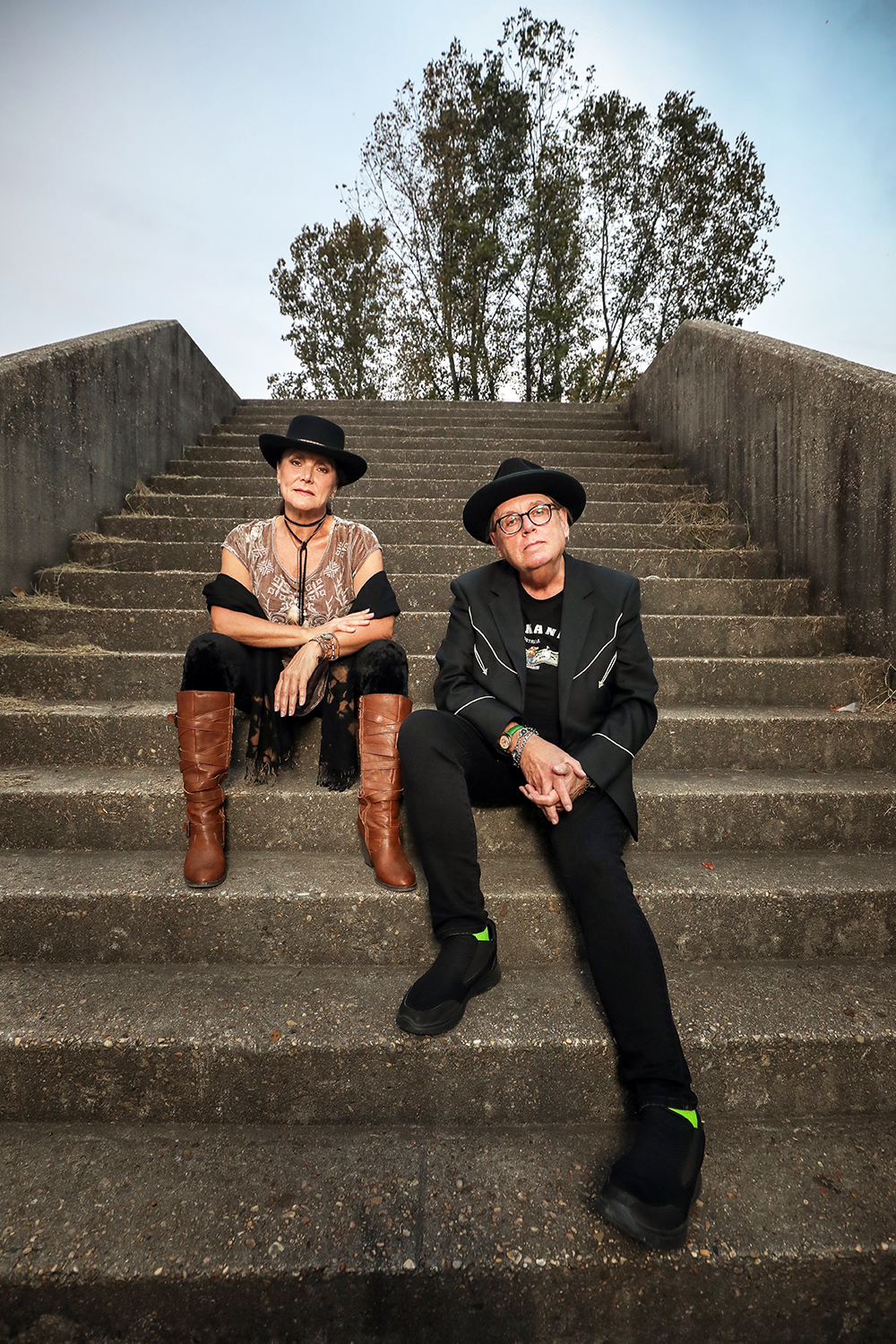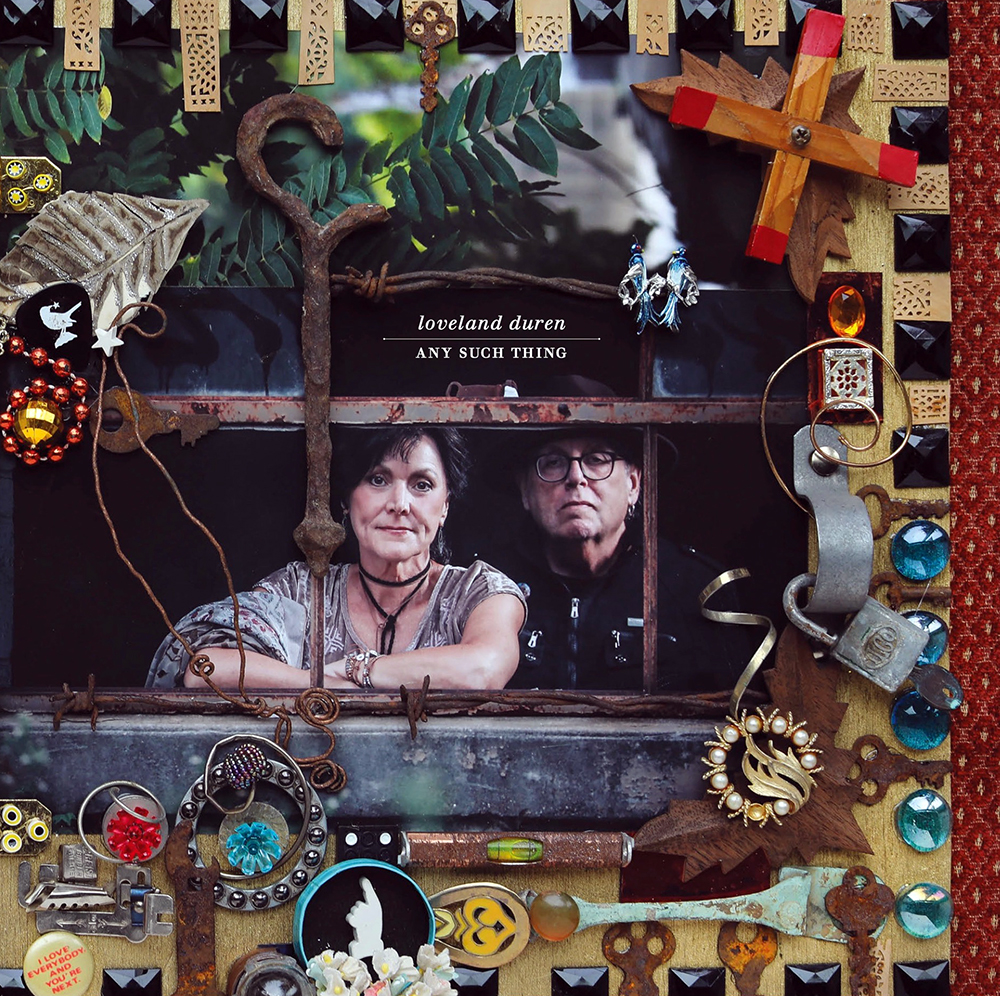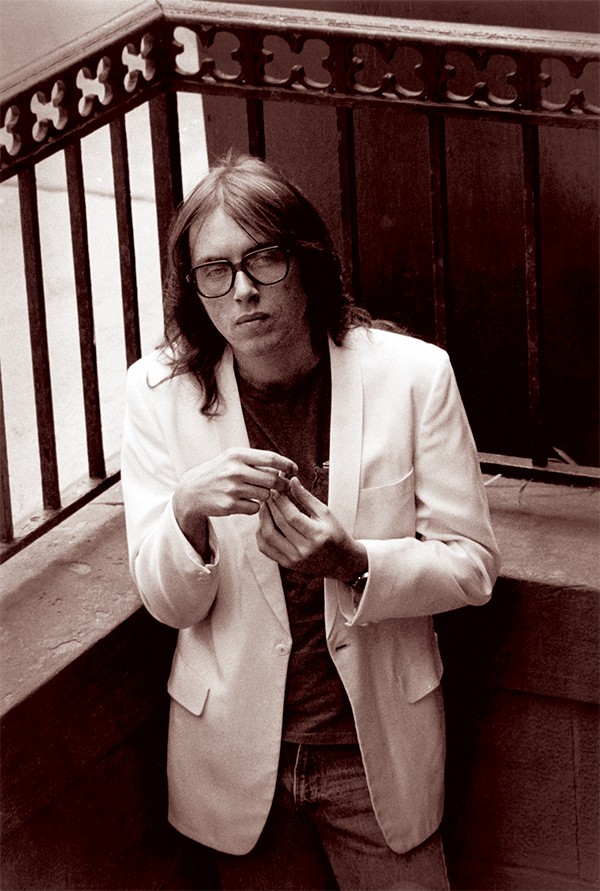Defining pop music is a treacherous task. Today, it suggests over-produced, sample-crammed dance tracks written by committees, but long ago, a Platonic ideal of pop came to be that had nothing to do with popularity per se. Rather, it’s built on the succinct blend of lyrics, melody, and rock rhythm that was pioneered in the ’60s but was never constrained by that era, evolving according to the inventiveness of each artist.
Call it “classic pop,” and Memphis has been graced with one of its finest practitioners for decades: Van Duren. The melodic and harmonic inventiveness of this restless singer-songwriter has never been easy to define. Some call his early work “power pop,” but even that limits the breadth of his imagination, which by the turn of the century had already brought a dozen albums of intriguing work, either under his own name or as the band Good Question. And when he began collaborating with fellow singer-songwriter Vicki Loveland nearly 10 years ago, things only got better, her soulful, strong voice blending seamlessly with his.
Now, with the October 1st release of the duo’s third album, Any Such Thing (Edgewood Recordings), both artists may have reached their pop apotheosis. “I honestly think that we’ve far surpassed anything we’ve done before,” says Duren. “It’s 10 songs and they’re all really strong. They’re all different, but there’s a thread that runs through them. They go to places we haven’t really gone before. Let’s face it, we’re not household names, so there are no expectations. That’s actually a plus.”

The duo must have known they had taken their craft to new levels when they booked time at some of Memphis’ finest studios, starting at Ardent in 2019 and ending up at Royal the next year. “I’ve been in Royal before, but never worked there,” he says. “And it just brought back the late ’70s to me, that old-school vibe.”
Those environs may have also inspired the exquisite arrangements for the material. A short list of the instrumentation includes strings, French horn, flute, and the perfectly Memphian horn section of Art Edmaiston, Marc Franklin, and Kirk Smothers. And while there are some flourishes of classic rock guitar on the stompers, the album as a whole is a keyboard-lover’s dream, with Duren playing some tasty Wurlitzer, longtime friend Liam Grundy of London on grand piano, and none other than the Rev. Charles Hodges on Hammond organ.
As Duren explains, the piano was more integral to his composition process than it had been for ages. Touring Australia in 2019, “we went back to those songs from 40 years ago, and that forced me to go back and readdress playing keyboards again, which I hadn’t done since before Vicki and I started working together seven or eight years ago. At that time, I didn’t want our songs sounding like the things I’d done before, so I started playing guitar only for a while.”
Loveland, for her part, brings her uniquely powerful voice to the proceedings. With a mother who was a big-band singer, it’s no wonder that her singing career began when she was 14. Her youthful experience singing four-part harmonies with her mom and older siblings clearly shows here, in the vocal blends she creates with Duren. And yet she really shines as a feisty, soulful lead vocalist.
That matches her penchant for writing lyrics with some teeth in them, echoing Duren’s own talents. “You tell me you love me / I think maybe you don’t / ’Cause you talk to me like I’m a second-class citizen / ’Cept when there’s somethin’ you want,” she sings. Later, she confesses, “I still love you / From a safe distance.” As with Duren’s best songs, she’ll unflinchingly dive into the complexities. The maturity of this duo pays off in the depth of their work and in arrangements that make the songs bloom with unexpected delights.
The Loveland Duren band will play a record release show at The Grove at GPAC, Thursday, October 7th, 5:30-8:30 p.m., $5.

 Seth Tiven
Seth Tiven